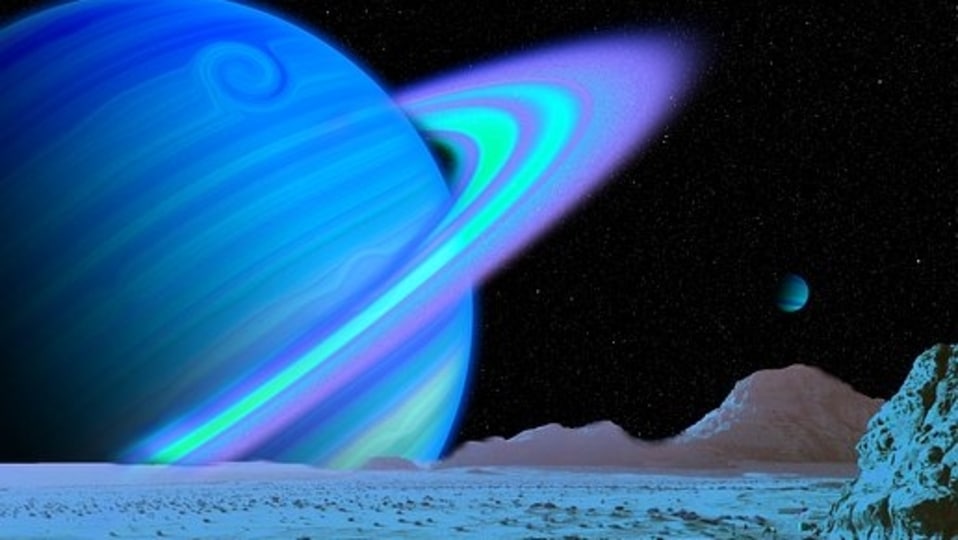The smallest moon ever detected around Uranus and two around Neptune
Astronomers have made a groundbreaking discovery, finding two tiny moons orbiting Neptune and one around Uranus. The Uranian moon, possibly the smallest ever detected, is just 5 miles wide.

Astronomers have recently made an intriguing discovery in our solar system, uncovering two tiny moons circling Neptune and one orbiting Uranus. These newfound celestial companions bring the total count of known moons around these gas giants to 16 for Neptune and 28 for Uranus.
The most remarkable of these discoveries is Uranus' new moon, believed to be the smallest ever detected around the ice giant. Measuring a mere 5 miles (8 kilometers) in width, this diminutive moon completes a single orbit around Uranus every 680 days. To put its size into perspective, it's even smaller than Mars' moon Deimos, one of the tiniest known moons in our solar system, according to Carnegie Institution for Science.
Currently designated as "S/2023 U1," the Uranian moon awaits an official name, likely to be drawn from a character in Shakespearean lore.
On Neptune's front, the brighter of its two newfound moons is provisionally named "S/2002 N5," with a diameter of 14 miles (23 km) and a 9-year orbit. Meanwhile, its fainter companion, "S/2021 N1," measures just 8.6 miles (14 km) across and takes 27 years to complete an orbit around Neptune.
These groundbreaking findings were announced by the International Astronomical Union's Minor Planet Center, showcasing the collaborative efforts of astronomers from various institutions. Utilizing observatories in Hawaii and Chile, researchers, including Scott Sheppard from Carnegie Science and colleagues from NASA's Jet Propulsion Laboratory, meticulously observed these elusive moons.
Sheppard's team employed advanced image processing techniques to unveil these faint objects, marking them as the faintest moons ever detected around Uranus and Neptune using ground-based telescopes. The discovery process involved months of meticulous observation and analysis, with special observing time granted for ultra-pristine conditions to determine the orbit of Neptune's fainter moon.
Interestingly, all three newfound moons exhibit egg-shaped orbits significantly inclined to the orbital plane of their host planets. This peculiar orbit suggests that they were captured gravitationally at a later stage rather than forming alongside their respective gas giants.
As astronomers continue to probe the depths of our solar system, discoveries like these offer valuable insights into the dynamics and evolution of planetary systems beyond Earth.
Also read other top stories today:
Smartphones and kids don't mix well! It was inevitable that access to such power and convenience would exact a price. Increasingly, it appears the most unanticipated and unacceptable has been our children's mental health. Check out the details here.
Human-like robots! Big technology names are investing in a business that's developing human-like robots. This is part of a scramble to find new applications for artificial intelligence. Read all about it here. If you enjoyed reading this article, please forward it to your friends and family.
Reddit brews controversy! AI will become an important part of Reddit's business. It is looking to tap into a revenue stream that could be both lucrative and controversial. Some interesting details in this article. Check it out here. If you enjoyed reading this article, please forward it to your friends and family.
Exciting fare on the cards! Spaceman, and Iwaju are some of the new TV, movies, music and games headed to a device near you. Check out what all is on offer here.
Catch all the Latest Tech News, Mobile News, Laptop News, Gaming news, Wearables News , How To News, also keep up with us on Whatsapp channel,Twitter, Facebook, Google News, and Instagram. For our latest videos, subscribe to our YouTube channel.

























